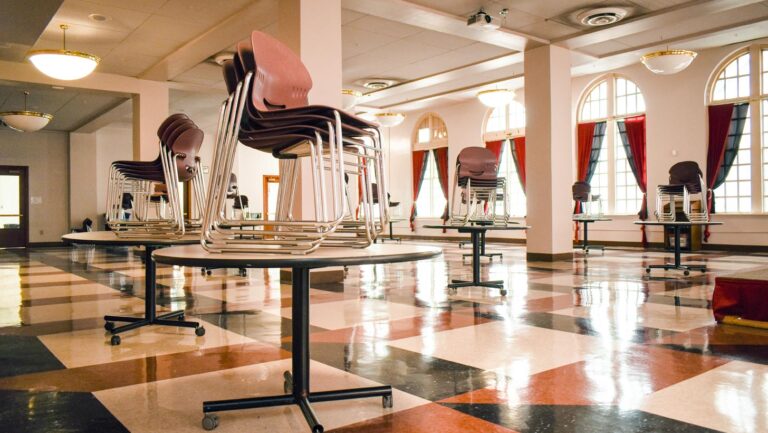The opinions expressed are solely those of the author. E-mail jerry@alibi.com.
Latest Article|September 3, 2020|Free
::Making Grown Men Cry Since 1992
5 min read
Joan Chittister is a 70-year-old Benedictine nun who’s on fire with the seemingly impossible task of helping us find our way out of the bog into which this nation and this culture have settled.That she goes about this thankless work with a twinkle in her eye and that she is not armed with an axe for grinding says a whole lot about her motivation: joy, not vengeance; zeal, not anger. But make no mistake about it: She is relentless, energetic and single-minded. Don’t be fooled by her laughter and her warmth. She is a woman on a mission. Chittister was in Albuquerque for two days a couple weeks ago, co-leading a conference on “Prophets Then and Prophets Now” at the Convention Center. It attracted over 1,200 people. They left ignited by the challenge to become prophets.Then she was off to other appearances in other cities: Call to Renewal; Call to Action; Sojourners; Tikkun; the Network of Spiritual Progressives; a conference on monasticism in India. Her pace is hectic, the sort of grind that would fatigue people half her age. But if her agenda is full, so is her message.“If your religion answers all your doubts, leaves you without uncertainty, maybe you need to begin asking bigger questions.”“To choose what is difficult all one’s days as if it were easy … that’s real faith,” (quoting W.H. Auden).Her message, in a nutshell, could be the quotation she offered from Thucydides, “Justice will come when those who are not oppressed feel as indignant about it as those who are.”Her conference co-leader, the nationally recognized Franciscan priest Richard Rohr, who has made Albuquerque his base of operations for almost 20 years, explained what “being a prophet” entails: living as part of a society, a nation, an institution, yet continually working at reforming it, constantly reminding it of how and how far it is straying from the original vision, integrity and goal that formed it. That’s not a task calculated to make prophets popular, particularly with those wielding power in the nation. In the Old Testament, prophets were frequently murdered for their trouble. We are prone to sending ours to federal prisons to “teach them a lesson.” You do not find prophets getting invited to dinner at the White House or being asked to give the invocations at Presidential Prayer Breakfasts. They don’t get shows on Fox News.The prevailing religious sense for a long time in our country has essentially been a smug possession of our status as somehow “chosen” by God. We must be right because we are so blessed.Chittister, however, reminds us of the true religious insight, one common to all the great religious traditions, that no one has exclusive claim to being God’s favorite—except the dispossessed, the marginalized and the rejected. It’s no wonder we have so few prophets today and so many televangelists.Still, 1,200 people from 43 states, Puerto Rico and four foreign countries made their way to the Convention Center to be inspired to question embarrassingly, to serve tirelessly and to laugh raucously at falsehood. Twelve-hundred prophets-in-training may be a drop in the bucket in a nation of 260 million, but it’s a good, strong start, especially since even one prophet speaking truth to power can turn around a whole society (see: Emperors, unclothed).Add their number to those who have been showing up at Jim Wallis ( God’s Politics ) and Michael Lerner ( The Left Hand of God ) appearances around the country, and you begin to get the feel that something very important has been set in motion, something that genuinely can transform the political scene in the U.S.Once you would have had to search through weeks of newspapers to find even passing mention of “progressives with spiritual values.” That seemed almost an oxymoronic concept in a country where the religious right had a 20-year head start in staking out its claim to mine the deep vein of religious impulse in America. No more. The Sunday Joan Chittister flew out of Albuquerque, the Journal had two pieces on its editorial page that discussed the political progressives’ claim to a rightful share of that impulse.Liberal columnist E.J. Dionne wrote about Sen. Barack Obama’s address to the Call to Renewal (sponsored by Sojourners Magazine ) conference, a speech that (Dionne says) may be “the most important pronouncement by a Democrat on faith and politics since John F. Kennedy’s Houston speech in 1960.” Obama’s stock as a potential leader of progressives soared and his honesty about true religious faith not erasing all doubt will have stamped him as that too-rare commodity, the politician who can be trusted because he doesn’t get coy when digging deep.Conservative columnist Jim Hoagland added his own perspective and contrasted American attitudes about politics and religion with those he’d encountered in Europe during a recent visit. Hoagland was surprised to find in Obama’s comments “an unusual combination of clarity and civility,” and a guideline for many governments (including some in the Middle East) for the thorny issue of how to combine religion and democracy.From Joan Chittister, Richard Rohr and Barack Obama we got exactly what we need from our prophets: matches struck to light the way and to ignite our hearts.






